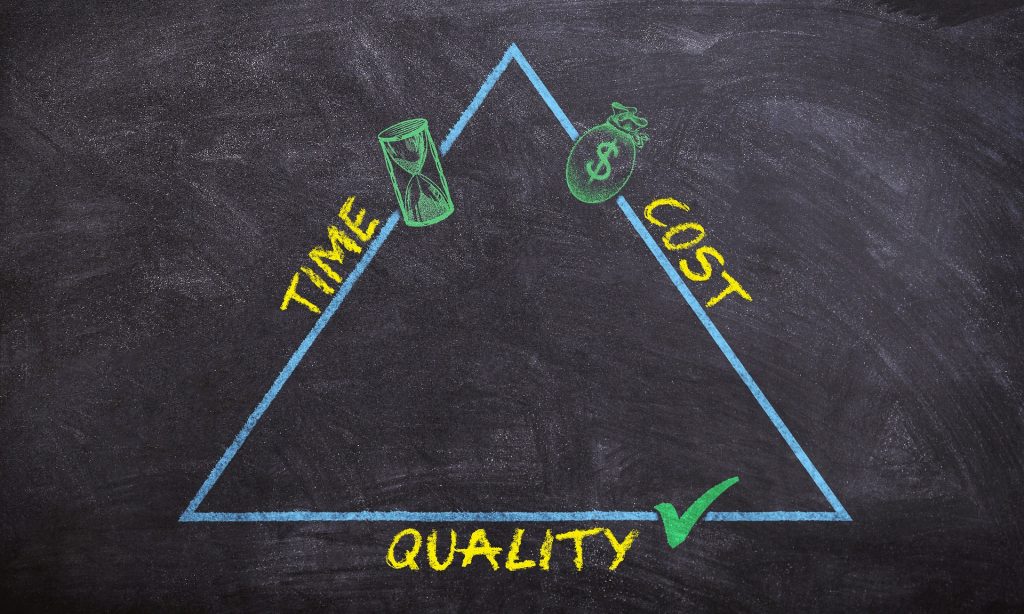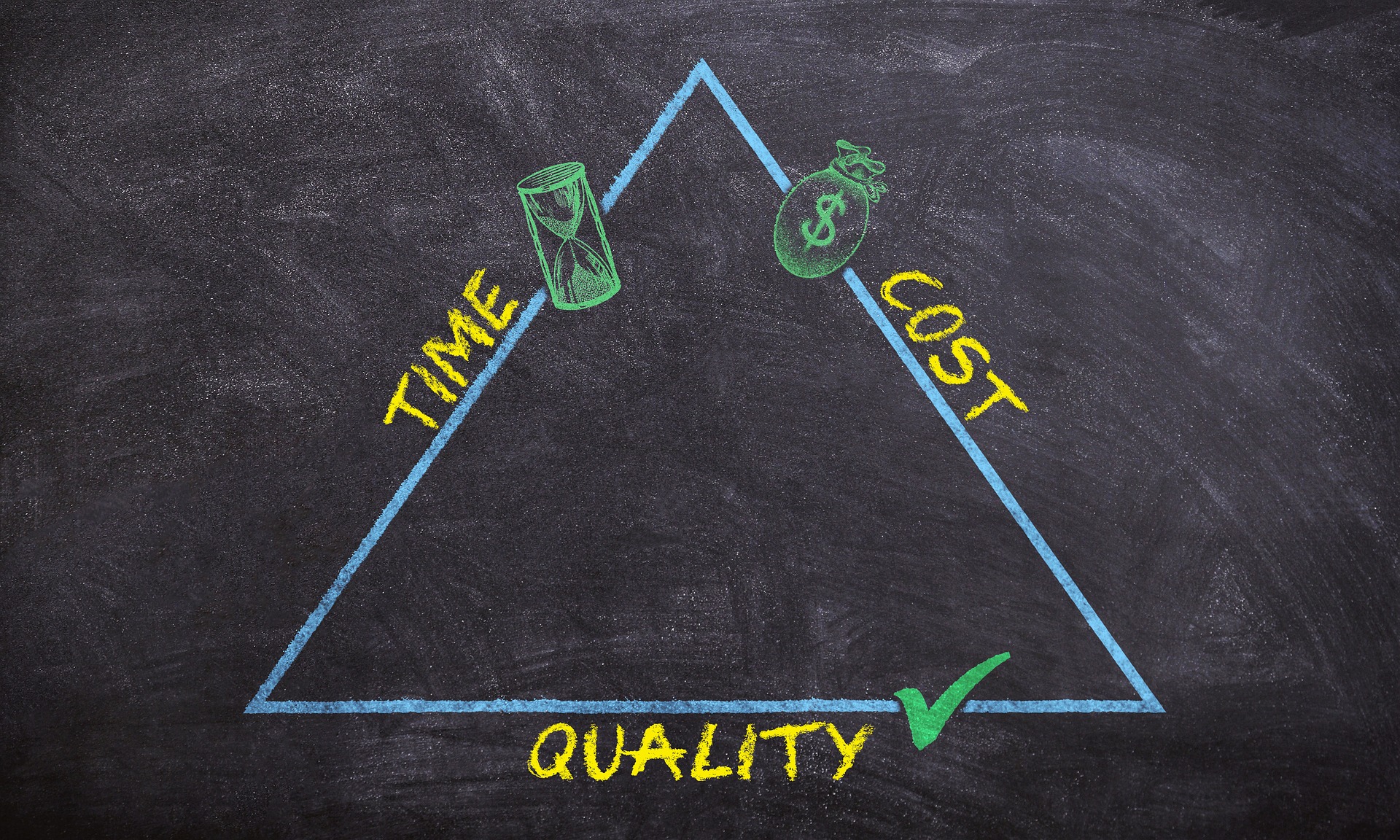On the road to Working Relationship Heaven with Freelancers, you’ll encounter certain challenges. One of the most tiresome is the spectre of the Bad Freelancer. Because they’re often well-camouflaged and difficult to spot, we’ve prepared this handy guide for potential clients, to help you identify the rotten apples. Of course, there are always exceptions to the rule, but if the freelancer you’re considering ticks more than 2 or 3 of the below, you should definitely reconsider.
1. They’re freelancing part-time

Some freelancers, especially when they’re just starting out, will still be employed full-time somewhere. This can be bad news for you, because it means they’ll have used up most of their energy (and good humour), not to mention most of their daily work hours, on their employer. So, your work will be relegated to the Silly Hours of 10pm – 2am, which generally means poorer quality and more errors. Also, depending on how demanding their job is, the part-time freelancer might also be prone to missing deadlines. So, if your project is complex, or time-sensitive, relying on someone who’s just freelancing on the side might not be your best bet, as their first priority will always be their job.
From the freelancer’s point of view, it makes sense to dip their toes in the water first with a few side projects (like yours) while they still have the security of a regular paycheque. However, the extra workload could prove too much, with many part-timers spreading themselves too thin and crash-and-burning. Although it’s not always the case that part-time freelancers will let you down, you should be aware of their situation, and need be, you should exert firmer control over them. For example, you might ask them to check in with you periodically to make sure they’re on track.
On the other hand, full-time freelancers know that their rent is dependent on your repeat business, and you’ll (usually) get better and more consistent service.
2. They’re a jack-of-all-trades

As a rule of thumb, great freelancers are generally quite senior and experienced in their field. That’s because self-employment comes with inherent risks, and the ones who do go out on their own are people who’ve built up their reputation and skills, and savings in case of uncertain income. And because it takes lots of time and patience to develop said skills, it’s rare for a freelancer to be good at lots of things. Generally, they’ll specialize in a small range of services, and do them extremely well.
So, if your freelancer is telling you they can do everything – be suspicious. For example, your web developer probably won’t be as good at writing copy, or doing the overall design. And that’s fair, because their skill is in coding. They can bring in partners, of course (and freelancers will often have preferred partners in complementary fields that they pull onto projects). But if they do, be sure that you are very clear on who you’re paying for, and the amount of control you have over these third parties.
3. They’re promising the impossible

There’s a golden triangle when it comes to work, with the principle being that you can only ever get 2 out of 3:
Anything that’s good is either not going to be cheap, or it’s going to take time. Something that’s quick can be cheap, but it’s often not very good. And something that’s cheap is well…not likely to be good. If your freelancer is promising delivery of masses of stuff, in an incredibly quick turnaround time, and charging you peanuts – run. There are only so many hours in a day, your freelancer is only humanly capable of so much, and people have rent to pay. So, decide which two points on the triangle are your priority, and choose a freelancer who can deliver.
4. They don’t act like a business

A freelancer who’s serious about their stuff will run their business like a business, not like a hobby. That means you should expect a professional email address, professional invoices (usually including terms and conditions, and possibly also a non-disclosure agreement), and professional behaviour.
Depending on the industry, your freelancer may not rock up to your meeting in a suit. But even if they’re wearing sneakers and jeans, or something you would consider eccentric (often the case with creatives, who seem to favour lots of hats), the overall impression should be neat and clean. They should arrive on time (even if you’re meeting online), be prepared to answer questions, and be able to give you a detailed explanation of the process and what to expect from the work. Your freelancer might have printed business cards, or point you to their website or online portfolio. Regardless of the details, you should get exactly the same experience dealing with the freelancer as you would dealing with any other professional business. If the freelancer acts more like it’s all fun and games, you can be sure you’re dealing with an amateur.
5. They’re virtually unknown in their industry

Unless your freelancer has recently moved countries, or come out of hibernation, or been freshly returned by aliens, someone in the industry should have heard of them. If you’re hiring someone from your own industry, you can reach out to colleagues to check their references. If you’re hiring someone from an industry you’re unfamiliar with, it might be a bit harder. But that’s when it’s even more important to check this unknown person out. That’s why we encourage you to find freelancers through platforms like Kalido, which let you see if you have any contacts in common who can share their opinion on the person.
You should always ask common contacts for their opinion before you work with someone, because it’s one of the best gauges of someone’s trustworthiness and authenticity. A person might be a very good BS artist during your one meeting, but as Abraham Lincoln said: ‘You can fool all the people some of the time, and some of the people all of the time, but you cannot fool all of the people all of the time’.
So, if you can’t find anyone with anything good to say about your freelancer, or worse anything to say about them, you should definitely be asking why.
In addition to the warning signs above, we’ll add one more note: A lot of people choose freelancers based on price, but because of everything we’ve said above about experience, expertise, commitment, and reputation, you should always wonder why someone is cheaper than everyone else. And when you’re looking for a freelancer, consider everything they bring to the table, instead of merely looking at someone’s rates. So, now that you know how to avoid bad freelancers, pop over to Kalido and find yourself a good one!

